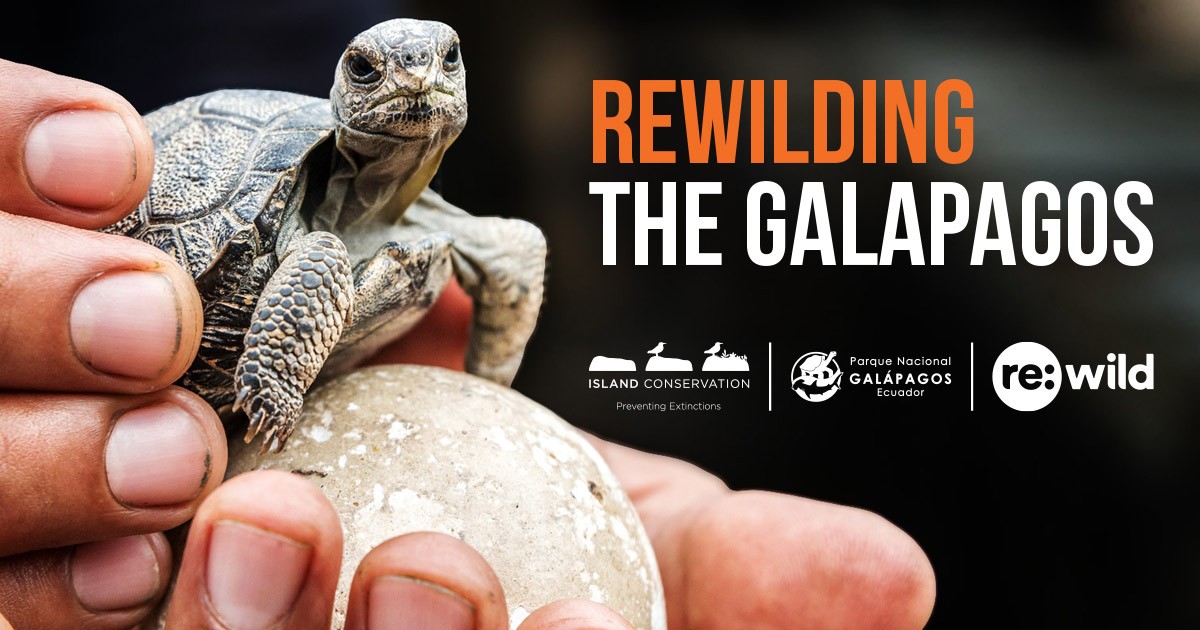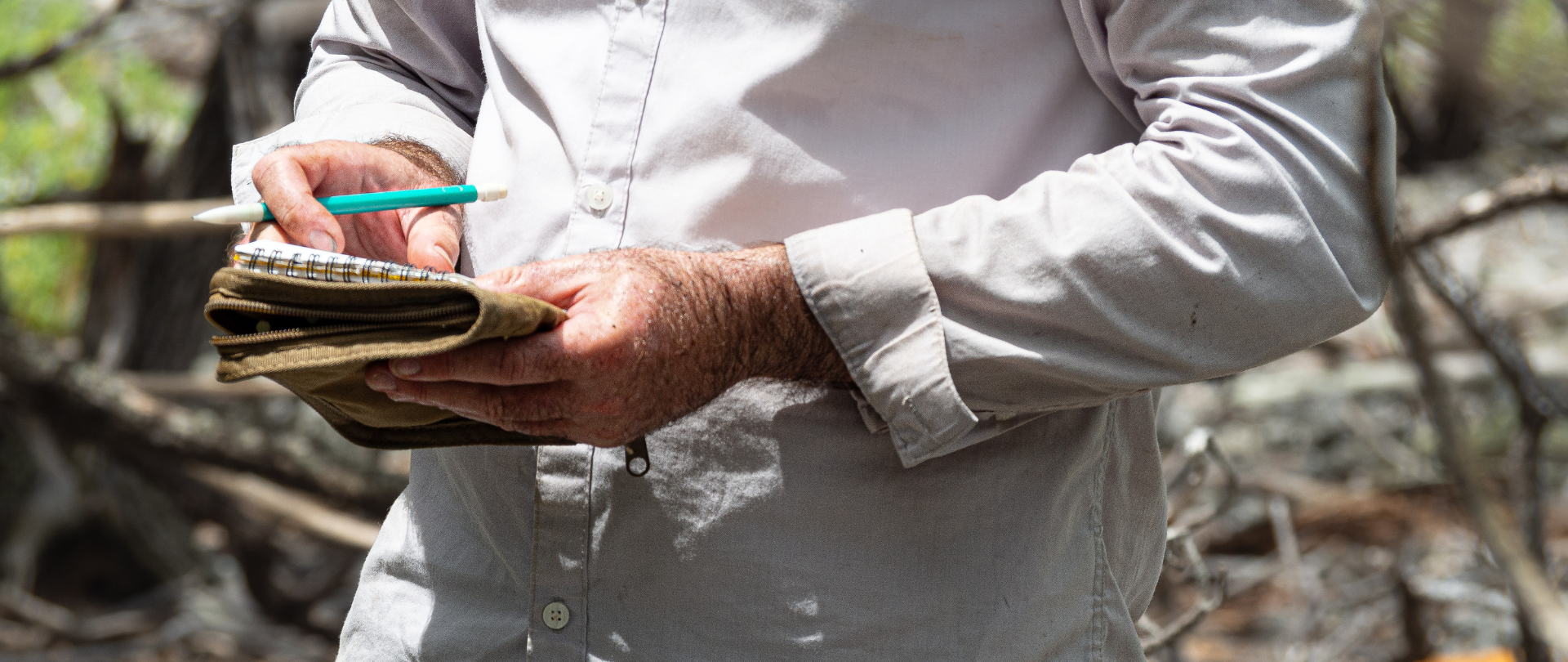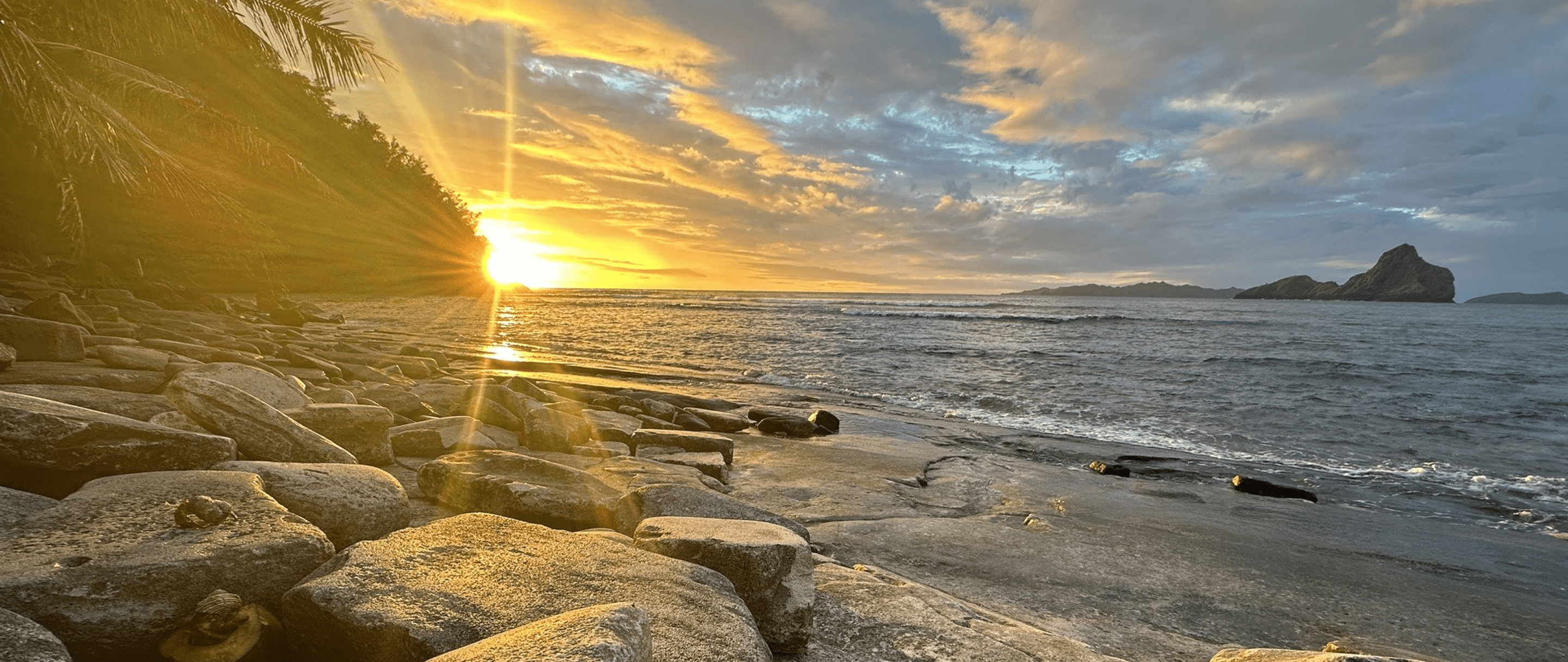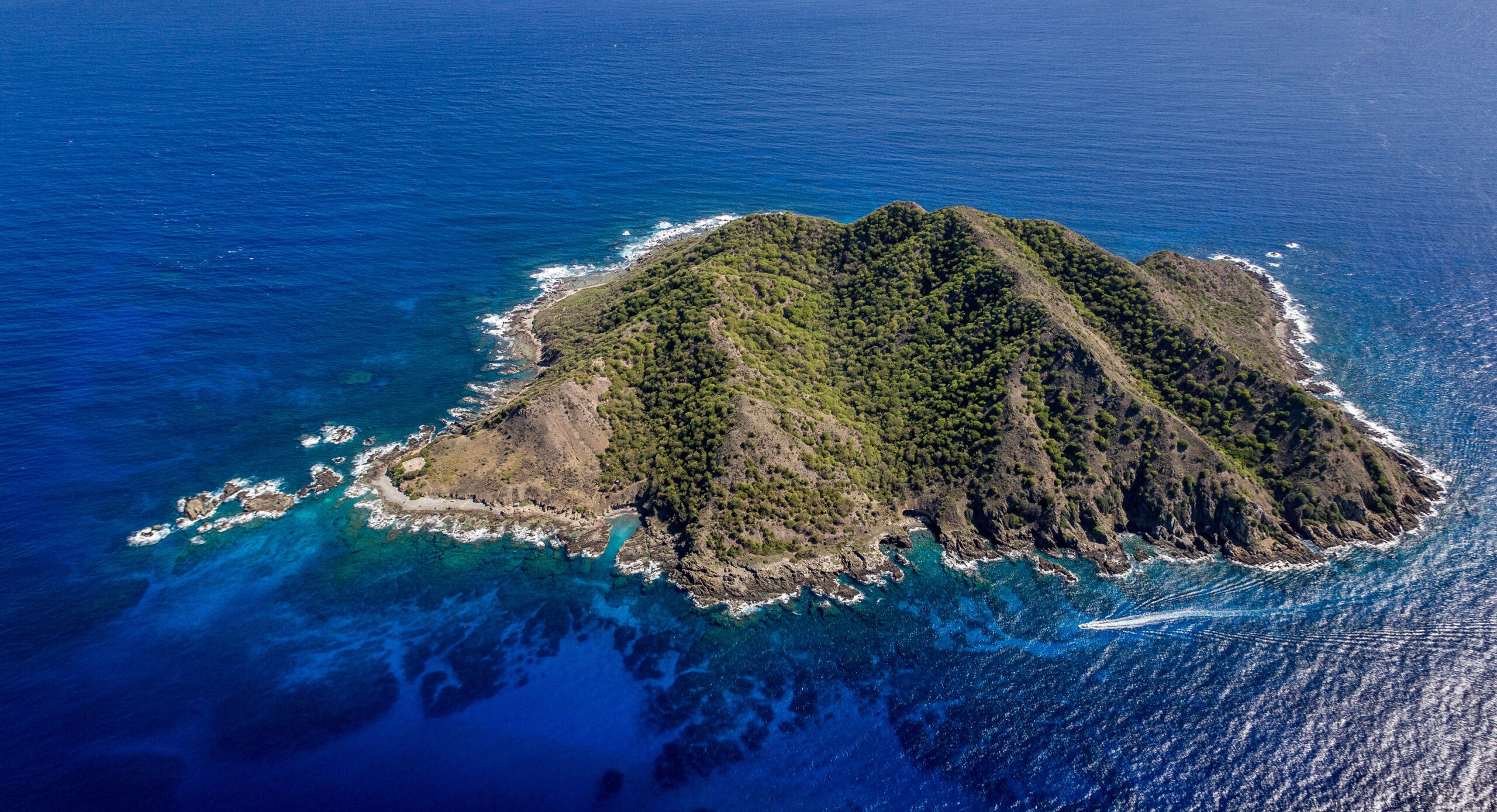New Paper Demonstrates Quality of eDNA Monitoring for Conservation
Groundbreaking research has the potential to transform the way we monitor invasive species on islands!
Our new online shop is live!
Published on
May 17, 2021
Written by
Island Conservation
Photo credit
Island Conservation

Re:wild, a new global environmental organization launched today, is poised to help build a world in balance with the wild, starting with its first major commitment: working with the Galapagos National Park Directorate, Island Conservation, and local communities, on a bold initiative to protect and rewild the Galápagos.
The initiative, building on the decades of work by local partners and communities, aims to rewild the Galapagos Islands and beyond at a scale never before attempted–across all of Latin America’s Pacific archipelagos, from Mexico down to Chile. Rewilding, a positive reframing for nature conservation, involves holistic solutions to remove barriers and reestablish vibrant wildlife populations and intact, functional, and resilient ecosystems that effectively integrate people.
These kinds of partnerships that leverage technical, social and financial innovations, are exactly what we need around the world to restore the health of our planet,” said Marcelo Mata Guerrero, Ecuador’s Minister of Environment and Water. “With Ecuador as one of the 17 most biodiverse countries on the planet, we have an opportunity here to demonstrate what a truly effective model looks like for the protection and restoration of our shared wildlife and wildlands–the immune system of our planet, protecting all life on Earth, including people, from the effects of climate change and emerging disease.”
Leonardo DiCaprio, who serves as a Re:wild founding board member, announced the Galapagos initiative and funding commitments by turning over his social media accounts for the day to Paula A. Castaño, a wildlife veterinarian and island restoration specialist with Island Conservation who lives in the Galapagos Islands and works across Latin America. Castaño is leading the efforts to reintroduce a number of endangered species back to their wild homes, in collaboration with the Galapagos National Park, local communities and other partners. Amplification of Castaño’s voice on social media is a preview of how Re:wild will bring international attention and resources to scale the work of environmental heroes.
Time is running out for so many species, especially on islands where their small populations are vulnerable and threatened. Galapagos’s pink iguanas, Floreana mockingbirds and other wildlife may soon be lost forever without action. We know how to prevent these extinctions and restore functional and thriving ecosystems—we have done it—but we need to replicate these successes, innovate and go to scale,” Castaño said. “We need catalytic investments like the one announced today to replicate our successes in the Galapagos and elsewhere.”
Castaño’s work exemplifies the kind of passionate commitment of the local organizations and communities that have been working tirelessly to protect and restore the Galapagos Islands, which face multiple threats. Introduced rats and other invasive mammals have decimated populations of birds and reptiles. Invasive species and industrial fishing have damaged these fragile environments, threatening the wildlife and ecosystems that keep the local communities and the planet healthy. Local efforts to protect and restore ecosystems, prevent the introduction of invasive species, return endangered species to their wild homes and bolster the economy through ecotourism will help guide the new region-wide approach.
When I travelled to the Galapagos Islands, I met with Paula Castaño and other environmental heroes in Ecuador working day in and day out to save one of the most irreplaceable places on the planet. I’m excited to share her team’s work and to support the longstanding effort to protect and restore these iconic islands, alongside the team at Re:wild,” said Leonardo DiCaprio. “Around the world, the wild is declining. We have degraded three quarters of the wild places and pushed more than one million species to the brink of extinction. More than half of Earth’s remaining wild areas could disappear in the next few decades if we don’t decisively act. Fortunately, conservation leaders like Paula are showing us that it is not too late to reverse this alarming trend. Re:wild offers a bold vision to amplify and scale the local solutions being led by Indigenous peoples and local communities, nongovernmental organizations, companies, and government agencies, to help increase their impact around the world. The environmental heroes that the planet needs are already here. Now we all must rise to the challenge and join them.”
The Galapagos initiative aims to bring together the necessary private-public support–including governments, foundations, individuals, corporations and organizations–to meet the scale of the threats to the Galapagos.
“This new initiative is a great opportunity for the Galapagos to be a global leader in rewilding, protecting and restoring our natural resources not only for the people of Ecuador, but for the people of the world,” said Henry Cobos, the mayor of San Cristóbal. “We have committed local and global partners, the buy-in of local communities who are helping lead these efforts, and we know how to bring back the wildlife and wildlands we’ve lost and how to protect the rest. We are grateful to Re:wild and Leonardo DiCaprio for the help. We hope this initiative will also inspire the global community–including philanthropists, world leaders, and individuals globally–to help us in our endeavor to rewild the planet’s cradle of evolution, the enchanted Galapagos Islands.”
The $43 million in support will fund Galapagos projects including:
“We invite others to join us in this effort to not just protect but to rewild the Galapagos,” said Danny Rueda, director of the Galapagos National Park Directorate, which manages both the marine and terrestrial protected areas.
Across the region, over the next 10 years the broader initiative intends to:
In order to reverse the climate crisis and ecosystem collapse, we need to focus on a ‘technology’ that took billions of years to refine, that is free, and that sustains us every single day: nature, in its most wild form,” said Wes Sechrest, Re:wild chief scientist and CEO. “Where better to begin than the Galapagos, which, as the first-declared World Heritage Site, is among the most extraordinary wild places on the planet. Re:wild’s work with partners is hope in action–from Darwin’s laboratory to Australia’s wildlands to the Congo forests of Central Africa.”
Supporters and implementing partners include: Galapagos National Park Directorate, Ecuador’s Ministry of Environment and Water, Brian Sheth and Adria Sheth’s Sangreal Foundation, North Equity Foundation, Global Environment Facility, Emerson Collective, KfW on behalf of the Federal German Government, 52HZ, Blue Action Fund, Charles Darwin Foundation, Conservation International as a Global Environment Facility partner agency, Durrell Wildlife Conservation Trust, Envico Technologies, Floreana Parish Council, Frente Insular, Galapagos Biosecurity Agency, Galapagos Conservation Trust, Galapagos Conservancy, Galapagos Invasive Species Fund, Global Rewilding Alliance, International Galapagos Tour Operators Association, Island Conservation, Jocotoco, CAF – Development Bank of Latin America, Lindblad Expeditions, Lonely Whale, Mas Galapagos, MigraMar, Mission Blue, Municipalities of San Cristóbal, Only One, Santa Cruz and Isabela, National Geographic Pristine Seas, Re:wild, SeaLegacy, Shark Conservation Fund, Silversea Cruises, Universidad San Francisco de Quito, WildAid, Wildlife Conservation Society, WILD Foundation, Willow Grove Foundation.
Re:wild is the latest organization linked to DiCaprio’s environmental activism. DiCaprio has been a longtime champion of global environmental issues including climate change, wildlife conservation, access to clean water, protecting biodiversity, marine conservation and supporting Indigenous communities. To date, through his philanthropic efforts, DiCaprio has provided more than $100 million in grants to a variety of programs and projects. In addition to his work with Re:wild, DiCaprio also serves on the boards of Natural Resources Defense Council, International Fund for Animal Welfare, and Earth Alliance where he serves as Co-Chair.
# # #
Photo: A rainbow on the Galapagos’s Floreana Island. (Photo by Andrew Wright/Island Conservation)
Media assets available here.
Re:wild
Re:wild protects and restores the wild. We have a singular and powerful focus: the wild as the most effective solution to the interconnected climate, biodiversity and pandemic crises. Founded by a group of renowned conservation scientists together with Leonardo DiCaprio, Re:wild is a force multiplier that brings together Indigenous peoples, local communities, influential leaders, nongovernmental organizations, governments, companies and the public to protect and rewild at the scale and speed we need. Re:wild launched in 2021 combining more than three decades of conservation impact by Leonardo DiCaprio and Global Wildlife Conservation, leveraging expertise, partnerships and platforms to bring new attention, energy and voices together. Our vital work has protected and conserved over 12 million acres benefitting more than 16,000 species in the world’s most irreplaceable places for biodiversity. We don’t need to reinvent the planet. We just need to rewild it—for all wildkind. Learn more at rewild.org
Galapagos National Park Directorate
The Galapagos National Park, established in 1959, covers 97% of the Galapagos Islands’ land surface area while the Galapagos Marine Reserve protects 138,000 km2 / 53,000 square miles of surrounding ocean. The Galapagos National Park Directorate is responsible for the conservation of the ecological integrity and biodiversity of the island and marine ecosystems. They also regulate the community’s sustainable use of Galapagos’ natural resources. The archipelago’s unique fauna and flora inspired Charles Darwin’s origin of species and continues to be a living laboratory of evolution. Acknowledging their global importance, the Galapagos Islands were declared the first UNESCO World Heritage site, a Biosphere Reserve and most recently a Blue Park. Learn more at www.galapagos.gob.ec/en/
Island Conservation
Island Conservation is a global, not-for-profit conservation organization that prevents extinctions and restores islands. We work where the concentration of both biodiversity and species extinction is the greatest – islands. Removing a primary threat – introduced invasive vertebrates – is one of the most critical interventions for saving threatened plants and animals. Native island species and ecosystems often recover with little additional intervention, and when animals have gone locally extinct, we reintroduce them. Island Conservation assists land managers and local communities to implement their visions. To date, we have successfully restored 65 islands worldwide, benefiting 1,195 populations of 487 species and subspecies. Learn more at www.islandconservation.org/
Media Contacts:
Emily Heber
Island Conservation
emily.heber@islandconservation.org
831-316-4047
Claudio Uribe (en español)
Island Conservation
claudio.uribe@islandconservation.org
831-316-3299
Lindsay Renick Mayer
Re:wild
lrenickmayer@rewild.org
202-422-4671
Devin Murphy
Re:wild
dmurphy@rewild.org
845-598-8092
Check out other journal entries we think you might be interested in.

Groundbreaking research has the potential to transform the way we monitor invasive species on islands!

Ann Singeo, founder of our partner organization the Ebiil Society, shares her vision for a thriving Palau and a flourishing world of indigenous science!

This historic agreement aims to protect the marine and coastal areas of the Southeast Pacific.

Our projects to restore key islets in Nukufetau Atoll forecast climate resilience and community benefits in Tuvalu!

Endangered Polynesian storm-petrels returning to Kamaka Island, French Polynesia within one month of social attraction tools being deployed. Polynesian storm-petrels have not been recorded on Kamaka Island for over 100 years due to invasive rats. These seabirds are able…

Our new branding and website support our vision of a world filled with vibrant biodiversity, resilient oceans, and thriving island communities!

Audubon's Shearwaters are nesting on Desecheo Island for the first time ever! Read about how we used social attraction to bring them home.

Island Conservation and partners have published a new paper quantifying ecosystem resilience on restored islands!

Climate Week NYC: what is it and why is it important? Read on to find out why Island Conservation is attending this amazing event!

With sea levels on the rise, how are the coastlines of islands transforming? Read on to find out how dynamic islands really are!